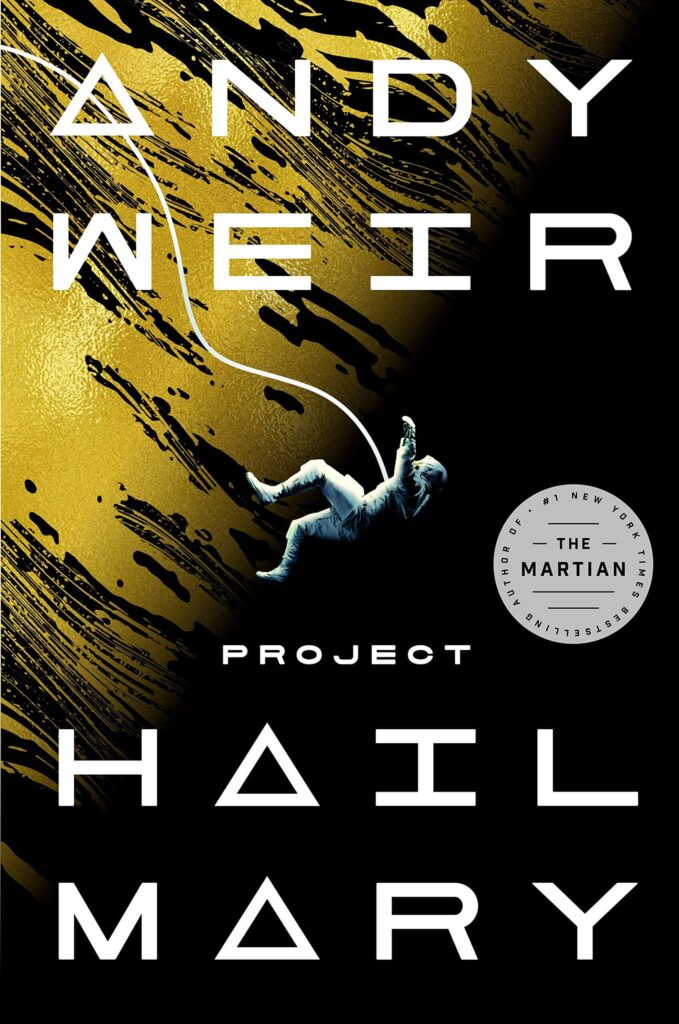The sun is dimming rapidly, and a trail of infrared light congregating on Venus leads to a discovery that will change — and maybe end — the course of humanity.
That’s the setup for this science-heavy novel from Andy Weir, author of The Martian. If you liked that book, as I and millions of others did, I can confidently say you will love Project Hail Mary. While they are both stories of survival in space, this newer book elevates it to a much grander scale. The stakes are higher and the odds slimmer for our protagonist, middle-school science teacher Ryland Grace.
The plot of Project Hail Mary is mostly straightforward, in the sense that, like The Martian, it is basically a series of challenges for our scientifically-minded protagonist to overcome. After he solves one, it won’t be too long before another crops up. If things seem to be going too smoothly for too long, you can bet the other shoe is about to drop. It’s a simple strategy, but an extremely satisfying way to create a page-turner for those who like clever solutions to novel problems.
That basic structure aside, Weir also employs occasional flashback chapters to provide new context for what is happening in present-time. Sometimes that technique can annoy me — Why are we interrupting the action for this? — but in this case, we are never forced into a flashback during a moment of high drama, and these chapters actually provide new information to Grace, the protagonist, as well as the reader. That is quite the trick, and leads to some revelations later in the book that change the complexion of Grace’s mission.
Although I enjoyed it very much, this is not a perfect novel. Some of the secondary characters are pretty stereotypical, like the wild Russian who drinks too much vodka. Others are a little implausible, like the two astronauts who, speaking with robotic formality, interrupt a conversation with Grace to make plans to have sex later. Even the most socially inept people wouldn’t do that, so it is a bit jarring even though it was played for humor.
Most annoying was Grace’s “gosh-darnit” speech pattern. I have no idea what the goal was there, except maybe to emphasize that he works with kids? Or to differentiate Grace from the very similar protagonist of The Martian? In any case, it was distracting and not necessary. Thankfully, it was mostly abandoned toward the end of the novel.
Finally, I need to acknowledge that “one white guy saves the world” has been done to death. It’s easy enough for me to ignore that because the protagonist and the author both look like me, but I can imagine this book is not quite as satisfying for people from different backgrounds who are seeing this trope for the millionth time. I’m not saying Weir should have written a protagonist that is far outside his own experience — that has its own complications — but it bears noting that he chose the easier, well-trod path when something potentially more interesting was within reach. Any small detail to moderate the fully-privileged existence of the protagonist could have enriched the story in subtle ways and made it more relatable to more people.
[Steps off soapbox…]
Anyway, I don’t want to downplay how much I personally enjoyed this book. Quibbles aside, it was a lot of fun and I could hardly put it down. Whatever Andy Weir is working on next, I hope he continues to expand his ambitions as an author without tinkering too much with what is (for me) a winning formula.
